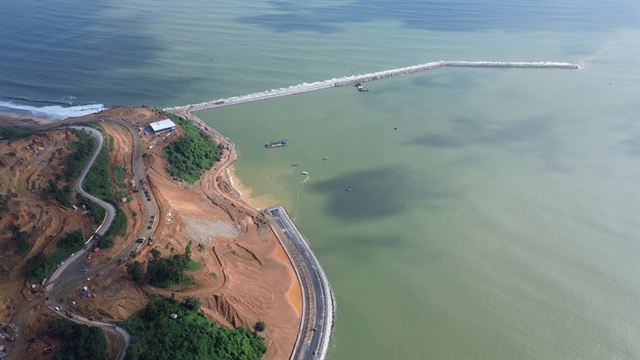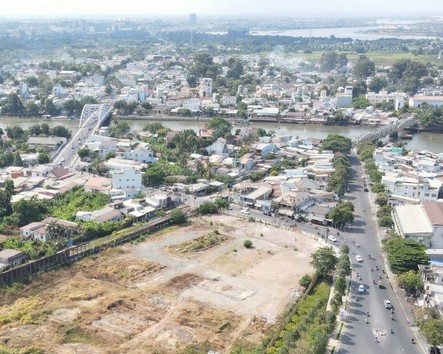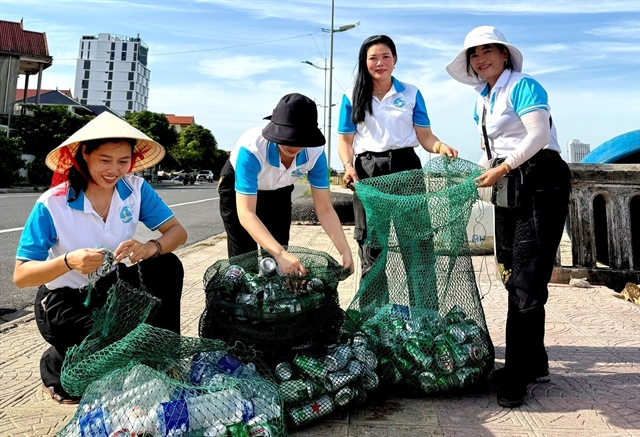 Environment
Environment
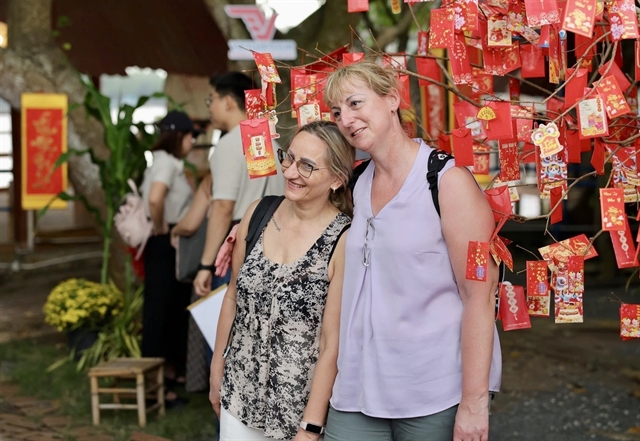
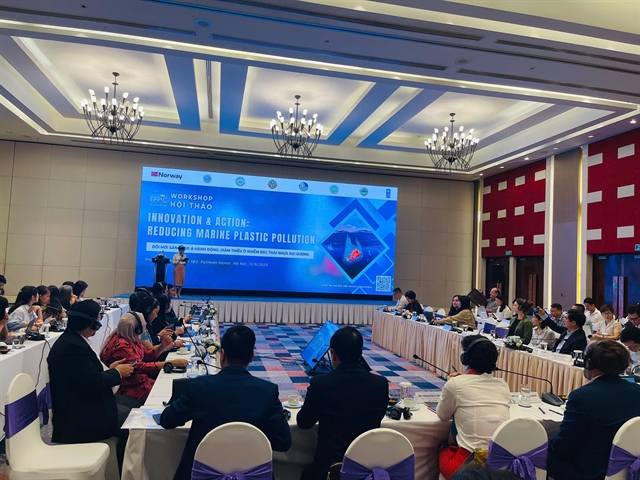 |
| Experts attend the workshop and discuss ways to minimise maritime plastic pollution. — VNS Photo Thu Trang |
HÀ NỘI — Riding the wave of marine ambition, Việt Nam has declared the 21st century the era of the oceans' and is placing maritime development at the heart of its national strategy, said Nguyễn Đức Toàn, director general of the Việt Nam Administration of Seas and Islands (VASI).
Toàn made the remarks at a workshop on innovative solutions to reduce ocean plastic pollution in Việt Nam and the ASEAN region, held in Hà Nội on Thursday.
The event was coorganised by the United Nations Development Programme (UNDP) in Việt Nam and the Norwegian Embassy in Hà Nội, with support from the Norwegian Government in coordination with VASI under the Ministry of Agriculture and Environment.
The workshop marked the official conclusion of the Innovation Challenge Project to Reduce Plastic Pollution (EPPIC). It also offered a platform to reflect on five years of achievements, share lessons learned and explore ways to scale up innovation for a circular plastic economy.
Sustainable change
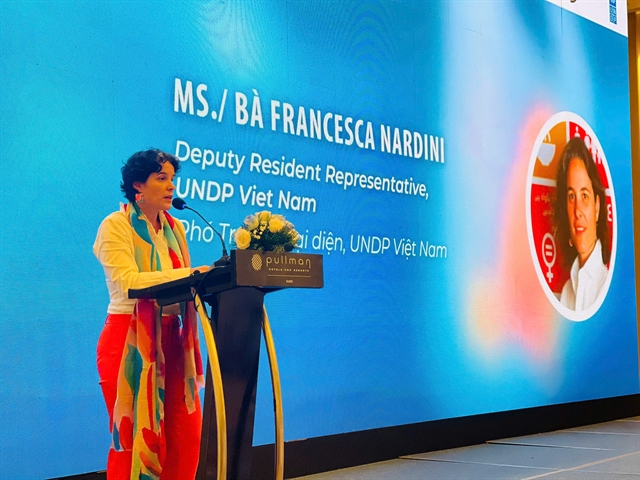 |
| Francesca Nardini, deputy resident representative of UNDP in Việt Nam, speaks at the event. — VNS Photo Thu Trang |
Starting in 2019, EPPIC aimed to seek and support innovative ideas to prevent plastic pollution from the source.
Over five years, the competition attracted nearly 350 applications from ASEAN countries. Forty-seven teams reached the finals and twelve outstanding teams received seed funding, training and acceleration support.
These solutions contributed to preventing and managing approximately 3,500 tonnes of plastic from entering the environment. From GreenJoy grass straws in Việt Nam, CIRAC solvent-free recycling technology in Thailand, Siklus refill stations in Indonesia to the TrashCash digital recycling platform in the Philippines – EPPIC has demonstrated the power of innovation in promoting a circular economy. In Cambodia and Laos, youth have also developed eco-friendly products, recycling initiatives and solar-powered devices to keep plastics out of rivers and seas.
Francesca Nardini, deputy resident representative of UNDP in Việt Nam, said: "Five years ago, we embarked on an ambitious journey by launching the Innovation Challenge to Reduce Plastic Pollution for the first time. This initiative was launched at a crucial time when the global fight against plastic pollution was increasingly urgent, and in Việt Nam, the Government had just approved the National Action Plan on Marine Plastic Waste in December 2019."
This effort is not exclusive to Việt Nam. It is a regional commitment involving close cooperation between Việt Nam and five other ASEAN countries.
“Together, we have strived to promote innovative solutions against plastic pollution throughout the ASEAN region,” she said.
At the workshop, delegates reviewed the innovation journey in the plastics sector from 2020 to 2025 with important recommendations to increase investment in future opportunities.
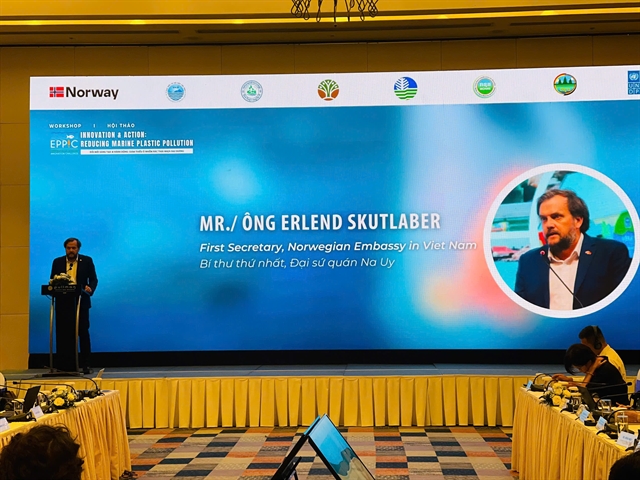 |
| Erlend Skutlaberg, First Secretary of the Norwegian Embassy in Hà Nội, shares his opinion about combating ocean plastic waste and pollution. — VNS Photo Thu Trang |
First Secretary of the Norwegian Embassy in Hà Nội Erlend Skutlaberg said that EPPIC was in line with Norway’s priority of combating ocean plastic waste and pollution.
“EPPIC has taken a multidimensional approach, combining innovation, policy development and regional cooperation to enhance local responses to one of the most urgent environmental challenges today. These efforts are also reinforced through the Regional Dialogue Partnership between Norway and ASEAN. EPPIC clearly demonstrates that regional cooperation can drive innovation and create real impact, contributing to plastic waste reduction and sustainable ocean management at the local, regional and international levels,” he said.
Deputy Resident Representative of UNDP in Việt Nam Francesca Nardini affirmed that she envisioned a future with reduced plastic pollution, where effective waste management techniques such as co-processing and circular economy initiatives like Deposit Return Schemes will thrive.
“In the context of the upcoming global plastics treaty, we are confident that Việt Nam and ASEAN countries will continue to lead these efforts. Together, we have laid the groundwork for a future free from marine plastic pollution – a future where innovation, inclusiveness and cooperation will create sustainable change,” she said.
Responsible maritime nation
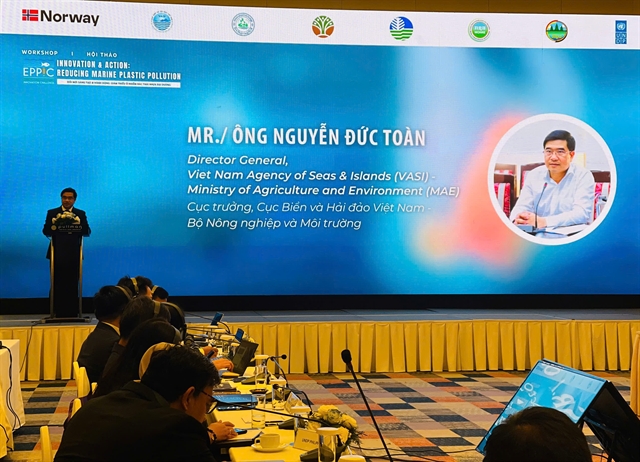 |
| Nguyễn Đức Toàn, director general of the Việt Nam Administration of Seas and Islands, affirms that Việt Nam targets to become a strong maritime nation. — VNS Photo Thu Trang |
General Director Toàn confirmed that integrated ocean and sea management was both a technical tool serving as a key coordinating mechanism to create unity in management and a strategic pillar helping Việt Nam to sustainably exploit the economic potential of the sea, protect the environment and affirm its position as a responsible maritime nation.
“Currently, marine plastic pollution is one of the severe transboundary challenges, posing a great threat to coastal and marine ecosystems and environments. It is clear that addressing this issue is not the responsibility of any single country, organisation or community alone,” said Toàn.
Under the care of the Party and the State, the task of preventing, combating and reducing marine plastic waste has been clearly stated in the Government’s Resolution No 26/NQ-CP, which promulgated the action plan to implement the Strategy for Sustainable Development of Việt Nam’s Blue Economy and the National Action Plan on Marine Plastic Waste Management until 2030.
In the near future, it is necessary to have support from international organisations, accompany businesses and involve local communities to further promote communication efforts, raise awareness about sustainable marine development, create strategic consensus among stakeholders; integrate policy – technology – communication within a unified governance framework to establish an effective multilateral cooperation model,” said the General Director.
Besides enhancing multi-stakeholder cooperation to address plastic pollution along the value chain, Toàn said it was essential to accelerate the transformation of the plastic management system, promote investment in circular solutions and innovation, in accordance with the guidelines and policies of Resolution No 57-NQ/TW on breakthroughs in science, technology, innovation and national digital transformation.
At the same time, concerned agencies should study to establish and develop a marine financial cooperation framework to mobilise resources from marine economic sectors for reinvestment in the environment and coastal communities, aiming for sustainable ocean governance.
“While Việt Nam is actively and comprehensively integrating into the international community with flexibility and effectiveness in the spirit of the 13th National Congress of the Party, along with great marine potential towards the goal of becoming a strong maritime nation, prosperous from the sea, VASI wishes UNDP and other stakeholders in sustainable blue economy development to continue to accompany and support professional activities,” said Toàn.
“Especially, after merging administrative units to expand development space and maximise the potential and strengths of coastal provinces and cities across the country, this support will also contribute to promoting sustainable livelihoods for coastal communities, ensuring UNDP’s principle of leaving no one behind.” — VNS


